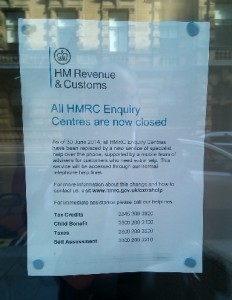The judgment of Justice Nicholas Wikely in the Upper Tribunal in VO v HMRC (TC) [2017] speaks for itself:
“Well, here we go yet again. I used the phrase “Well, here we go again” with a sense of frustration, bordering on despair, to open my decision in NI v HMRC [2015] UKUT 160 (AAC), a case in which I criticised Her Majesty Revenue and Customs (HMRC) for both its decision-making processes and its conduct of appeals in relation to tax credits claims. .. So, yes, in short this is yet another sorry tale of HMRC institutional incompetence and inefficiency which could well have led to injustice, were it not for the persistence of the Appellant.”
But of course, it did lead to injustice: the denial of entitlement and redress for five years. The judge explained the case as follows:
The HMRC written response to the Appellant’s appeal made the case look very
straightforward. In a nutshell, the Appellant had failed to reply to a request from HMRC to provide evidence of her entitlement to tax credits. She was therefore no longer entitled to tax credits for the relevant tax year and was liable for a substantial overpayment. So, according to HMRC, it was an open and shut case. End of story. … In her notice of appeal, the Appellant stated that “as I previously explained, I forwarded all the information required from me and to my surprise you never received the documents” (emphasis added). I interpose here that I have underlined the phrase “as I previously explained” as this statement alone should have rung alarm bells for the FTT. This is because there was nothing at all in the HMRC evidence provided with the appeal response to suggest that the Appellant had made any contact with HMRC before her notice of appeal … In the parallel universe that is tax credits adjudication, the file does not actually include something as elementary or fundamental as the actual decision notice. As HMRC’s original response to the FTT appeal explained, the HMRC computer cannot provide a copy of a decision notice – only the claimant can do that. So, in a classic Orwellian doublespeak, the response continues: “HMRC has not omitted to include the decision notices from the bundle; it is simply unable to provide copies”. How are we supposed to respond to this? “Oh well, that’s alright then.” Who designed this computer system? Did anyone think to check it was compatible with basic tenets of good public administration, let alone the principles of administrative justice?
He warns first-tier tribunals not to take HMRC’s statements on trust.
The basic principles of administrative justice include the right to know what the argument is against you, and the right to have a hearing. The same disregard for citizens’ rights, of course, is found in decisions about sanctions, where penalties are frequently imposed before the claimant has any opportunity to object.


